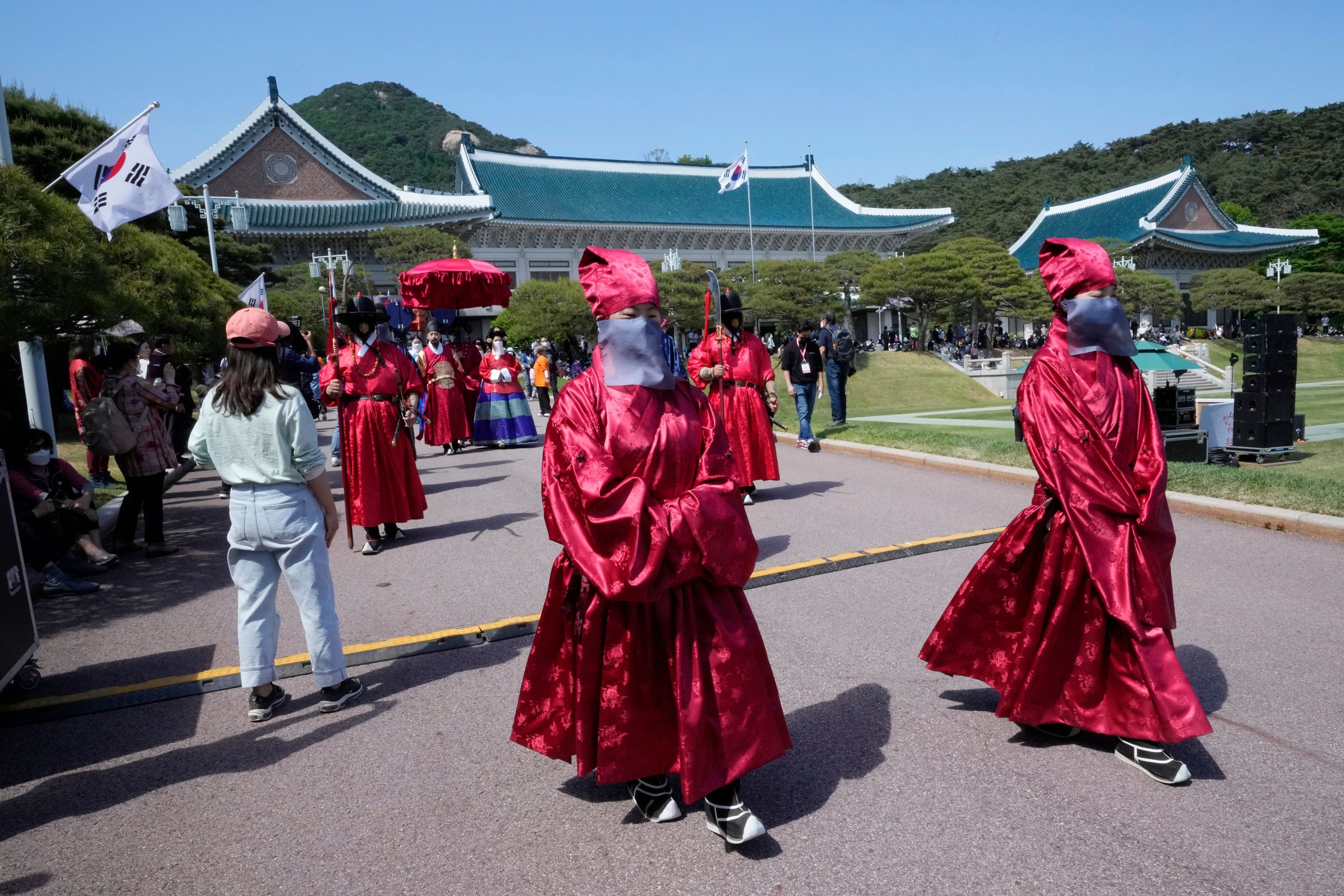For many South Koreans, the former presidential palace in Seoul was a little-visited, heavily secured mountainside landmark. That’s now changed as thousands have been allowed a look inside for the first time in 74 years.
As one of his first acts, the new South Korean leader has moved the presidential offices from the Blue House, named after its distinctive blue roof tiles, and opened its gates to the public, allowing a maximum of 39,000 people a day to visit.
Also read: North Korea likely to test nuclear weapon ahead of President Joe Biden’s visit to Seoul
The normally serious compound has been transformed into something like a fair, with excited crowds looking around and standing in long queues.
“I feel grateful that the Blue House has opened to the public,” 61-year-old office worker Lee Sang Woon said recently during a tour with his family. “I am really happy to be here.”
The Blue House has gone through multiple transformations over the years. Once the site of a royal garden, the Japanese built the official residence for their governors-general there during Tokyo’s colonial rule of the Korean Peninsula. After Korea was liberated from Japan in 1945, the U.S. military commander occupied the place until it became South Korea’s official presidential office and residence upon the country’s foundation in 1948.
The Blue House opening is part of new South Korean President Yoon Suk Yeol’s pledge to abandon the palace and establish his offices at the Defence Ministry compound in the Yongsan district, about 5 kilometres (3 miles) away.
Yoon said he chose the Defence Ministry compound because it’s already equipped with security-related command facilities. He said he aims to build something similar to the White House in Washington that would let citizens have a closer look at the building over a fence. Yoon said the new offices will allow for better communication with the public.
His relocation plans, however, have faced complaints that they were rushed and unrealistic. Critics say a hasty movement of top government offices could undermine national security by concentrating too much power in one place, cost too much and violate the property rights of people living in the area.
His predecessor, Moon Jae-in, also expressed worries that Yoon made his decision before hearing enough public opinion.







